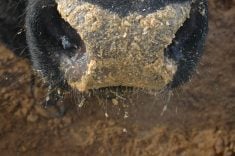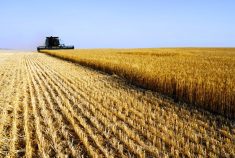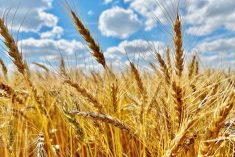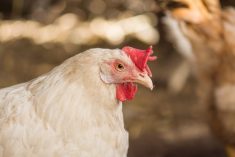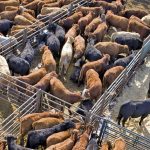It’s a headline that makes little sense: Potato shortage on Prince Edward Island.
However, it is a reality and that’s why Cavendish Farms is closing its fresh potato packing plant in O’Leary, P.E.I.
“Cavendish Farms has had to make this difficult business decision based on ongoing demand and limited availability of potatoes on (P.E.I.),” said Ron Clow, Cavendish Farms general manager.
“The supply of raw product is critical to our business.”
Read Also
Ample supplies and improved livestock sector to boost Canadian feed sector: FCC
Abundant feed grain supplies and improved profitability for the livestock sector should support strong feed demand and sales through the winter, says a new report from Farm Credit Canada.
There was a drought on part of the island last year, and potato yields took a hit. As a result, there weren’t enough potatoes to supply Cavendish Farms’ french fry processing plant on P.E.I. and its fresh potato facility. The company had to “import” about 150 million pounds of potatoes from Manitoba, Alberta, New Brunswick and Maine to supply the plants.
Growing conditions are better this year, but Cavendish managers concluded that potato production on P.E.I. is insufficient.
“Plans are already in place to import 65 million lb. this year,” Clow said.
“This practice is not sustainable. There simply aren’t enough potatoes on P.E.I. for both our lines of business.”
The Cavendish decision surprised Kevin MacIsaac, general manager for United Potato Growers of Canada.
He didn’t know about the plant closure until Cavendish sent out a news release July 30.
“I think it’s an attempt by the company to focus on the processing (french fry) sector. That’s the one that’s the most profitable today. French fry sales are driving further and further up all the time,” he said from his Charlottetown office.
“Is (the decision) related directly to supply? I’m sure it’s difficult to get that amount of potatoes because there are so many more potatoes needed for the processing side right now.”
Cavendish Farms said potato yields in P.E.I. need to increase and keep pace with other regions of North America. Producers may need to invest in irrigation so yields aren’t dependent on rainfall.
Yields on P.E.I. have been stagnant since 2014, while producers in Alberta and Manitoba have pushed average yields significantly higher:
• P.E.I.’s average yield dropped to 284 cwt. per acre in 2017 from 298 cwt. in 2014.
• Manitoba’s average yield increased to 353.5 cwt. per acre in 2017 from 308 cwt. in 2014.
• Alberta’s average yield increased to 390 cwt. in 2017 from 361 cwt. in 2014.
Cavendish will close its fresh potato packing plant at the end of 2018. About 40 employees will be affected. The shortage of potatoes on P.E.I. and the closure is negative news, but booming sales of frozen potato products is great news for Canada’s potato industry.
In February, Simplot announced a $460 million expansion of its french fry plant in Portage la Prairie, and Cavendish Farms is building a $360 million potato processing plant in Lethbridge.
The companies are investing huge sums to keep up with exports of frozen potatoes to Asia and strong demand in North America.
“With the demand (for) french fries today and frozen product, they can’t physically meet that with the current plant capacities,” MacIsaac said.
“They have to build more plants.”
robert.arnason@producer.com
Breaking ag news stories and commodities markets snapshots delivered daily right to your inbox!








